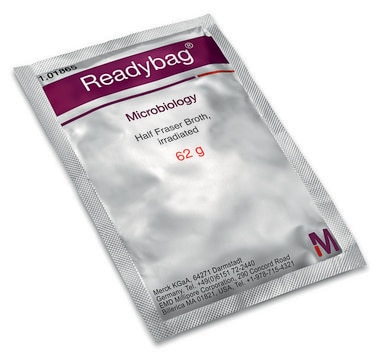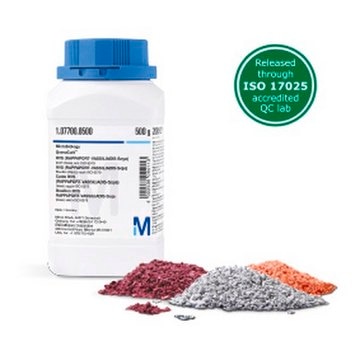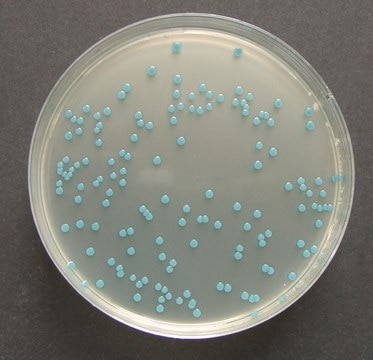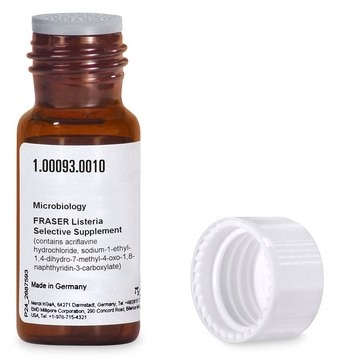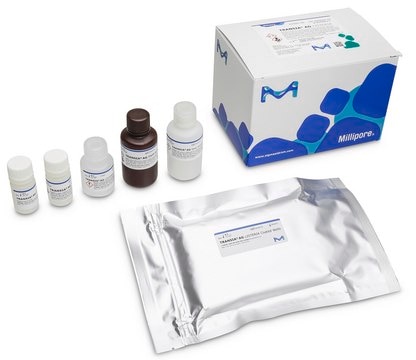1.02449
Readybag® Half FRASER broth with supplements
pkg of 60 pieces, according to FDA (BAM), ISO 11290, for Listeria spp.
Synonym(s):
Demi FRASER broth with supplements
About This Item
Recommended Products
agency
APHA
ISO 11290
Quality Level
reg. compliance
according to FDA (BAM)
sterility
sterile; γ-irradiated
form
medium granules (dehydrated (DCM))
packaging
pkg of 60 pieces
pkg of (Each sachet contains 12.5 g of granulated Half Fraser broth to which 225 mL of sterile water is added)
manufacturer/tradename
ReadyBag®
technique(s)
microbiological culture: suitable
pH
7.0-7.4 (25 °C, 55 g/L in H2O)
solubility
55 g/L
application(s)
food and beverages
microbiology
pathogen testing
storage temp.
15-25°C
suitability
Listeria spp. (spp.)
General description
The high nutrient content and the large buffer capacity of the Readybag® Half FRASER broth (with supplements) create optimum growth conditions for Listeria spp. Lithium chloride, nalidixic acid, and acriflavine hydrochloride inhibit the growth of accompanying bacteria. Esculin and ammonium iron (III) citrate forms a black complex of esculetin with iron (III) ions and facilitates the detection of β-D-glucosidase activity. But this reaction is not exclusive to Listeria spp. Hence, every primary and secondary enrichment in Fraser broth must be sub-cultured on selective plating media.
Application
Legal Information
Storage Class
11 - Combustible Solids
wgk_germany
WGK 3
flash_point_f
Not applicable
flash_point_c
Not applicable
Certificates of Analysis (COA)
Search for Certificates of Analysis (COA) by entering the products Lot/Batch Number. Lot and Batch Numbers can be found on a product’s label following the words ‘Lot’ or ‘Batch’.
Already Own This Product?
Find documentation for the products that you have recently purchased in the Document Library.
Customers Also Viewed
Articles
Detection of Listeria monocytogenes in food and environmental samples according to ISO 11290-1, FDA-BAM and USDA-FSIS
Protocols
In recent years it has been recognized that Listeria is an important public health problem. The disease affects primarily people of advanced age, pregnant women, newborns, and adults with weakened immune systems.
Our team of scientists has experience in all areas of research including Life Science, Material Science, Chemical Synthesis, Chromatography, Analytical and many others.
Contact Technical Service
